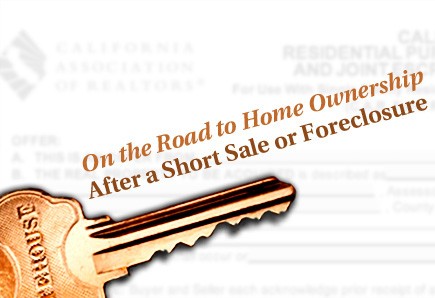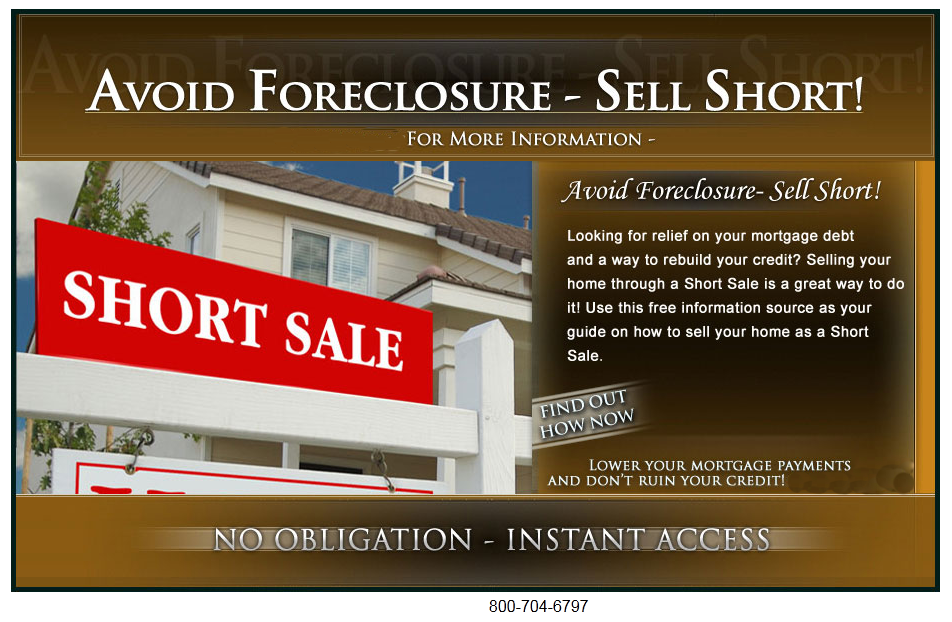Buying A Short Sale Or A Foreclosure
Post on: 29 Сентябрь, 2015 No Comment

Share:
January 05, 2010 06:36 PM
In today’s market, almost half of the homes listed for sale are distressed sales — meaning they are either short sales or foreclosures . The percentage varies depending on the city and region, but foreclosures and short sales generally make up a large part of the home inventory in many metropolitan areas in the United States, including the Dallas — Fort Worth area. This will likely remain the case for at least the next couple of years.
And while it is true that many foreclosures and short sales are great homes, buyers should know the possible advantages and disadvantages of entering into these types of transactions.
Foreclosures and short sales are not the same thing . A foreclosure occurs when a home owner is unable to make their mortgage payments to the point that they default per the terms of their note. At that point, the trustee forces the property to be sold at auction on the courthouse steps and the lender places a minimum bid equal to the amount of the delinquent mortgage. If the lender happens to be the highest bidder, then they end up owning the property (called an REO or Real Estate Owned property). Sometimes the lender will negotiate with the guarantor, such as Fannie Mae or FHA, to take over the task of selling the asset. Other times, they will keep it on their books and sell it themselves. A HUD home is a property where the previous owner had an FHA loan, the property was foreclosed and the lender negotiated with HUD to take over and sell the home. And likewise, a Fannie Mae, Freddie Mac or VA foreclosure is essentially the same situation.
A short sale occurs when when a home is still owned by the home owner, but the amount of money they owe on their mortgage plus the costs to sell the home exceed the total market value. When this happens, the home owner usually either has to come up with the deficiency balance in cash or they must negotiate with their lender to accept a payoff that’s short of the amount they owe. So a short sale is exactly what it sounds like-a home owner is selling the property short of the total cost to liquidate the home.
In a non-distressed sale, a home buyer usually just has to deal with negotiating the offer with an individual seller. For example, if I wanted to sell my house right now, I would hire an agent to market my home and obtain an offer. Once a buyer came along with an offer, I would instruct my agent to negotiate per the terms I was willing to accept. I do not have an asset manager or a department of people in my living room tasked with making this decision — it’s a somewhat simple decision that I would make quickly and efficiently because it’s the only home I have to sell.
In the case of a foreclosure. the seller is usually a bank or asset manager, so the process is often somewhat different. Some foreclosures do not take much longer, sometimes no longer, to close than a transaction with an individual seller. It ultimately depends on several factors, mainly the bidding and paperwork process required by the lender. Often times, the bidding process is very straightforward and efficient (as in the case of HUD Homes). Other times, it can be a complete beaurocatic nightmare.
In the the case of a short sale. the seller is still the individual who owns the home, but they must negotiate with the lender to allow a portion of their loan balance to be forgiven (written off). This is the main drawback to short sales — they can take an extraordinary amount of time to close in some cases because it may take the lender weeks or even months to perform all of the internal steps they must complete in order to make their decision. I’ve heard stories of extreme cases, some here on Active Rain, about short sales taking upwards of six to nine months to close. In my experience this is not typical, but they almost always take significantly longer than sales involving individual sellers and even most foreclosures.
For home buyers looking to take advantage of the tax credits and the low interest rates, time is of the essence and this may not be the route they should choose if trying to close as quickly as possible. Having said that, there are instances where short sales may only take 30-60 days to close. It all depends on the lender and also whether or not the process of negotiating the reduction in payoff was started prior to the buyer entering into the transaction.
BUYING A FORECLOSURE — ADVANTAGES AND DISADVANTAGES
Possible Advantages:
- Some lenders offer incentives to home buyers purchasing their foreclosures, such as various HUD and Fannie Mae programs. Fannie Mae and Freddie Mac also offer incentives to owner-occupant purchasers, such as reduced down payments and extended home warranties.
Possible Disadvantages:
- Depending on the lender, the transaction may take longer to close. Lenders often require loan documents to be at the title company far in advance of closing. Furthermore, inspections may take longer becuase utilities must be turned on in many cases. Other circumstances may arise that can cause delays.
BUYING A SHORT SALE — ADVANTAGES AND DISADVANTAGES
Possible Advantages:

Possible Disadvantages:
- The seller may not be able to make any repairs, especially since they may already be in a distressed financial state. The lender will usually not agree to make any repairs either, and may also refuse to pay a portion of the buyer’s closing costs.
As with anything else in real estate, every transaction is different. This is not meant to discourage home buyers from attempting to purchase foreclosures or short sales, it is merely meant to show the possible advantages and disadvantages. I have worked with foreclosure and short sale transactions on both the loan and real estate side, and each one had its ups and downs. In every case where the buyer was prepared, they were typically pleased with the outcome. But buyers should be aware of the drawbacks, especially the long waiting periods associated with some of these transactions, mainly short sales. Buyers who need to close within a certain time frame should always evaluate the risks before beginning negotiations.
Posted by
John Jones, Realtor
Dallas City Center, Realtors
3100 Monticello Ave. Suite 200
Dallas, TX 75205
Dallas, TX Real Estate and surrounding areas of Richardson, Plano, Addison, Frisco, Carrollton, Farmers Branch, Garland, Allen, Irving, Rowlett, and Rockwall .
Dallas, TX neighborhoods and subdivisions of Lake Highlands, White Rock Lake, Lochwood, Eastwood, L Streets, M Streets, Hollywood Heights, Lakewood, Coronado and Gastonwood, Forest Hills, Lochwood, Eastwood, and Preston Hollow .
www.homesourcedallas.com *














